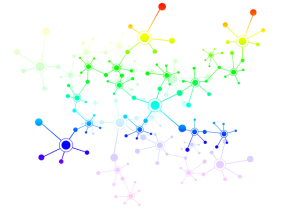As we approach the end of Ramadan, Sophia Butt, a PGR in the Department of English Language & Linguistics and the School of Social Policy, shares her thoughts on the parallels between being a successful researcher and observing the Islamic holy month.
When I was invited to write a blogpost about my experiences of being a PGR observing Ramadan, one of the first thoughts that came to mind was the many parallels between the prerequisites for success during this Islamic month, and the fundamental principles of being an effective PGR. Ramadan is a time for mindfulness and spiritual reflection to strive for lasting personal and societal betterment.

Similarly, the Researcher Development Framework (RDF) helps PGRs realise their potential to develop credible academic and professional portfolios. Its four domains of:
- knowledge & intellectual abilities;
- personal effectiveness;
- governance & organisation; and
- engagement, influence & impact
and its 12 sub-domains emphasise the skills and behaviours which also underpin the spirit of Ramadan, i.e.:
| Month of Ramadan | Skills | PGR Success |
| adhering to specified times for daily fasts | Time Management | committing to regular research activities to meet deadlines |
| enhancing theological knowledge through reading & listening to spiritual sermons | Intellectual Development | sourcing & interpreting multi-modal materials to develop subject knowledge |
| thinking beyond rituals by critically engaging with values that underpin desired behaviours & norms | Critical Thinking | evaluating sources, findings & assumptions to reach effective conclusions |
| being cognisant of actions that feed misconceptions, and avoiding these through positive deeds | Cognitive Awareness & Problem-Solving | recognising & isolating problems in research to seek solutions for the same |
| exercising willpower, patience & determination to achieve goals | Perseverance | overcoming procrastination & obstacles to meeting aims |
| introspecting & developing self-awareness to become a better version of oneself | Self-Reflection | identifying strengths & weaknesses as a PGR to capitalise on the former & address the latter |
| spreading positivity & facilitating the enactment of good deeds | Engagement & Influence | adopting a collegial approach to peer engagement & knowledge sharing |
| understanding & enacting the principles of moral behaviour | Understanding Governance | applying the codes of ethical & legal practice throughout studies |
| conducting oneself in a manner befitting of an ambassador of Islam | Professional Conduct | adhering to institutional & departmental expectations of academic practice & integrity |
Until my teens, I had a rather rudimentary understanding of ‘sawm’ or fasting. I thought it was simply about nurturing God-consciousness and spirituality while abstaining from food and drink from dawn till dusk. But with maturity, I realised that the month of Ramadan also instils self-discipline, steadfastness and refraining from behaviours that are harmful to oneself – and society. It encourages empathy, humility, and charity by urging reflection on the lives of the less fortunate and those enduring perpetual adversity.
Additionally, it accords opportunities for physical, psychological, and social development: scientific studies have shown that intermittent fasting purges the body of toxins, thereby enhancing physical and mental wellbeing. Hence, mindfulness during Ramadan serves as a reminder of how to secure year-round gains. This philosophy can also be applied laterally to achieve PGR success whether by adopting a positive mindset with determination; overcoming challenges by avoiding harmful distractions; or helping struggling peers.
And so, as this month of Ramadan draws to a close, I look forward to the rewards of my endeavours…



 Enterprise sits within the Engagement, Influence and Impact domain, however enterprise skills feature in all four sections of the RDF. Enterprise isn’t a stand-alone skill you can develop in isolation, it requires a whole host of competencies and attributes. In fact I have identified 38 descriptors within the RDF which relate to enterprise.
Enterprise sits within the Engagement, Influence and Impact domain, however enterprise skills feature in all four sections of the RDF. Enterprise isn’t a stand-alone skill you can develop in isolation, it requires a whole host of competencies and attributes. In fact I have identified 38 descriptors within the RDF which relate to enterprise. As we approach the University of Birmingham
As we approach the University of Birmingham 